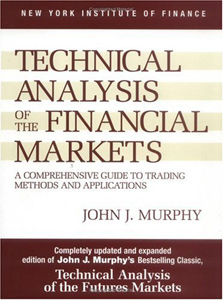Glossary of Stock Trading and Investment Terminology
An algorithm is a precise set of rules specifying how to solve problems. Algorithmic trading is automated trading used to find the best prices, where programs make trading decisions on markets. In short, the need for human intervention to buy/sell securities is eliminated. Algorithmic trading is also called algo, robo or black-box trading. Investments by hedge funds and other large institutions make use of algorithmic trading.
The term inflation, also known as the Consumer Price Inflation (CPI) refers to the rise in the price level of goods and services which mean the consumers will have to spend more money to buy the same amount of goods or services. Inflation is one of those factors that reduces the buying power of the customers and is considered as a “true enemy” for the investors because of its negative influence over the market. Market forces as well as the Government policies usually play a key role in the rise and decline of inflation in a country.
What Causes Inflation?
A non-renounceable rights issue is when a company offers its shareholders the right to purchase more of the company's stock, usually at a discount to market rate. Compared to renounceable rights, the offer is not transferable to other parties and cannot be bought or sold. Issuing more shares of a stock dilutes the value of current outstanding stock on the market.
Day trading refers to purchasing and selling various types of financial instruments within the same day in order to make profits from the price discrepancy. The person who follows this type of trading approach is called- a day trader. Usually the new traders tend to be more attracted to day trading as they want to get out of the pressure of holding a large amount of money at stake and want to sell off the instrument for profit as soon as the price goes up.
Monetary policy is a very important tool of the Government of a country which uses this particular tool in an attempt to influence the national economy. By implementing the monetary policy, a Government controls the availability of money in the country and also attempts to obtain its political goals through the process. Some of the main issues that a Government needs to address under its monetary policy are: economic growth of the nation, unemployment rate of the society and balance of external payments.
Monetary Policy and Role of Central Banks
- How to Trade Forex and Gold Options
- How to Trade the Gold Price and Profit!
- Forex Trading the EUR/USD Pair € EURO and $ US Dollar
- How to Trade Stock Market Indices S&P500
- How to Trade Crude Oil
- Forex Trading Psychology
- What Are Broker Recommendations?
- Free Tickets to Trading & Investing Seminar & Expo ($18) Brisbane 2013
- Stock Calc App
- All About Warrants
- Introduction to Exchange Traded Funds
- Introduction to Exchange Traded Funds: Features
- Introduction to Exchange Traded Funds: Domestic ETFs
- Introduction to Exchange Traded Funds: International ETFs
- Exchange Traded Commodities
- Australian Stock Scan
- Australian Online Share Trading
- List of Trading Books
- Interesting Thoughts about the Australian Dollar
- What's the Meaning of Hawkish?
- Do You Know How To Use the P/E Ratio
- Trading, Religion and Politics - Do They Have Anything in Common?
- Shares that are Volatile that Double and Half in the Short Term
- Telstra (TLS) T3
- Margin Call by E-mail
- The Cost of Holding a Position
- Lack of Disclosure: Compensation from ASX Listed Company
- Unrealistic Returns and Benchmarks
- CMC Markets Down
- Quality versus Quantity Forex Trading
- Woolworths 1H Sales $30.7bn up 3.2%
Date added 31-01-2013 - ASIC Fines CommBank's CommSec
Date added 25-09-2012 - Industry Super Network Calls to Ban High Frequency Trading (HFT)
Date added 22-09-2012 - NAB Launches Online Share Trading Platform
Date added 19-09-2012 - Reserve Bank of Australia Says 23 Countries Holding AUD
Date added 18-09-2012 - Australia Post Digital Mailbox
Date added 10-09-2012 - Winners and Losers of Trading for Week 2
Date added 16-01-2012 - 2012's First Week of the Best and Worst Traded Stocks
Date added 09-01-2012 - 2011's Last Best and Worst Traded Stocks
Date added 05-01-2012 - Best and Worst Pre-Christmas Traded Stocks
Date added 30-12-2011 - Trading Winners and Losers for Dec. 12-16
Date added 19-12-2011 - Best and Worst Traded Stocks for Dec. 5-9
Date added 13-12-2011 - Top 3 Best and Worst Traded Stocks
Date added 05-12-2011 - ASX Glitch Trading Halt
Date added 27-10-2011 - Worst Trade Stocks (and the Best)
Date added 06-08-2011
Top 150 Public Companies Listed on the Australian Stockmarket as at 29/05/2009
- BHP Billiton
- Westpac Banking Corporation (WBC)
- Commonwealth Bank of Australia (CBA)
- National Australia Bank (NAB)
- Telstra (TLS)
- ANZ
- News Corporation (NWS)
- Woolworths Limited(WOW)
- Woodside Petroleum Limited (WPL)
- Rio Tinto
- Westfield Group (WDC)
- Westfarmers Limited (WES)
- QBE Insurance
- CSL
- Newcrest Mining Limited (NCM)
- Origin Energy Limited (ORG)
- Santos Limited (STO)
- AMP Limited (AMP)
- Macquarie Group (MQG)
- Foster’s Group Limited (FGL)



